Howard Tate
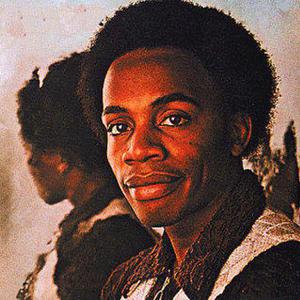
- Genre:
- R&B
- Meta style:
- Soul
- Styles:
- Northern Soul, Pop-Soul, Uptown Soul
Howard Tate is an American soul music singer and songwriter. He was born August 14, 1939, in Macon, Georgia, and moved with his family to Philadelphia in the early 1940s. In his teens, he joined a gospel music group that included Garnett Mimms, and as the Gainors, the group in the early 1960s recorded rhythm and blues sides for Mercury Records and Cameo Records. Tate performed with organist Bill Doggett and returned to Philadelphia.
Garnett Mimms, now leading a group called the Enchanters, introduced Tate to record-producer Jerry Ragovoy, who began recording Tate for Verve Records. Utilizing top New York City session musicians such as Paul Griffin, Richard Tee, Eric Gale, Chuck Rainey and Herb Lovell, Tate and Ragovoy produced, from 1966 to 1968, a series of soul-music recordings that are regarded as some of the most sophisticated of the era. "Ain't Nobody Home" (1966), "Stop" (1967), and "Get It While You Can" (1967), all written or co-written by Ragovoy, were well-received by record buyers, with "Ain't Nobody Home" and "Stop" charting both pop and R&B. Janis Joplin performed "Get It While You Can" during this time. Tate released an album, Get It While You Can, that was regarded as a classic by aficionados, but which failed to sell in large quantities. However, Tate's reputation among critics was very high. As Robert Christgau writes in his review of Tate's Verve material, "Tate is a blues-drenched Macon native who had the desire to head north and sounds it every time he gooses a lament with one of the trademark keens that signify the escape he never achieved. He brought out the best in soul pro Jerry Ragovoy, who made Tate's records jump instead of arranging them into submission, and gave him lyrics with some wit to them besides."
Tate, working apart from Ragovoy, made an album called Howard Tate's Reaction that was released in 1970. Produced by Lloyd Price and Johnny Nash, it was distributed in minute quantities, and critics felt it lacked the flair of his Verve material. As Christgau writes, "Tate's voice is potent enough to activate more inert material." The record was reissued, as Reaction, in 2003. Ragovoy and Tate reunited for the 1972 Atlantic Records Howard Tate, which included more songs by Ragovoy along with Tate's versions of Bob Dylan's "Girl from the North Country" and Robbie Robertson's and Levon Helm's "Jemima Surrender." Again, the album was acclaimed by critics and virtually ignored by listeners.
After recording a single for Epic Records and a few songs for his own label, Tate retired from the record business in the late 1970s. He sold securities in the New Jersey and Philadelphia area, and in the 1980s developed a dependence on drugs, ending up living in a homeless shelter. In the mid-1990s Howard Tate began counselling drug abusers and the mentally ill, and worked as a preacher. A Jersey City disc jockey discovered in 2000 Tate's whereabouts, and in spring 2001 Tate played his first date in many years, in New Orleans. He then began working with Ragovoy on an album that was released, as Rediscovered, in 2003. It was regarded as a return to form and included covers of songs by Elvis Costello and Prince as well as a new version of "Get It While You Can." In 2006, Shout Factory released 'Howard Tate Live', a critically acclaimed recording of a concert given in Denmark in the summer of 2004. His eagerly anticipated new studio release 'Portrait of Howard' includes material by Randy Newman, Burt Bacharach, Nick Lowe, Chrissie Hynde, Lou Reed, and Carla Bley, as well as new originals by Tate and producer Steve Weisberg.
- Sort by
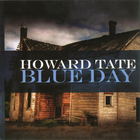
Blue Day
- Year:
- 2008
- Tracks:
- 15
- Bitrate:
- 320 kbps
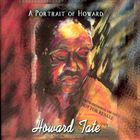
A Portrait Of Howard
- Year:
- 2006
- Tracks:
- 18
- Bitrate:
- 128 kbps
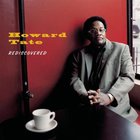
Rediscovered
- Year:
- 2003
- Tracks:
- 12
- Bitrate:
- 320 kbps
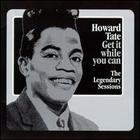
Get It While You Can: The Legendary Sessions
- Year:
- 1995
- Tracks:
- 17
- Bitrate:
- 320 kbps
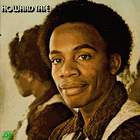
Howard Tate (Vinyl)
- Year:
- 1972
- Tracks:
- 12
- Bitrate:
- 320 kbps
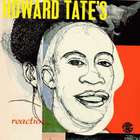
Reaction (Vinyl)
- Year:
- 1970
- Tracks:
- 12
- Bitrate:
- 320 kbps
 Al Green
Al Green  Garnet Mimms
Garnet Mimms  Gene Chandler
Gene Chandler  Jackie Wilson
Jackie Wilson  James Carr
James Carr  Joe Tex
Joe Tex  Solomon Burke
Solomon Burke  Johnny "Guitar" Watson
Johnny "Guitar" Watson  Larry Williams
Larry Williams  Otis Redding
Otis Redding  wilson pickett
wilson pickett  Bill Doggett
Bill Doggett  Gene McDaniels
Gene McDaniels  George Mccrae
George Mccrae  J.J. Jackson
J.J. Jackson  Lloyd Price
Lloyd Price  Lorraine Ellison
Lorraine Ellison  Nathaniel Mayer
Nathaniel Mayer